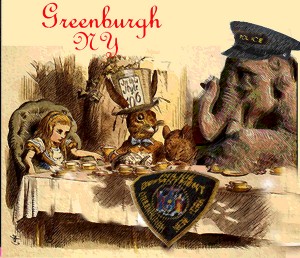Recently my brother in law, Bill Quick, demanded that I remove a picture of my father from this website. Although apparently motivated by the family feud, Bill had the right to demand this under copyright law.
This issue of copyrights associated with photographs on the web has recently escalated because of “revenge porn”, a recent phenomenon. Now when you think of porn, you might think of sex movies or amateur videos. So if you’ve never heard of revenge porn you might be mistaken and think it is a niche category of porn, similar to midgetporn perhaps. But the main distinction for revenge porn is that it is often distributed with the intent to shame one or more persons depicted in the content. The NY Times recently reported on this and on the effort to make laws that control the use of photographs on the web.
A big part of the problem is a conflict between the rights of privacy and the First Amendment rights of expression. Simply put, Bill was right. Even though the image was sof my father, Bill made the image and has the right to use it as he wants and to restrict is use.
Oddly, Bill’s rights to my father’s image do not extend to i,ages others have made of him! That issue has become a major issue because of a phenomenon called “revenge porn.” As reported in the NY Times, one lady, surprised to see her boyfriend’s photos of her on a website, commented, “He said if I didn’t want to send them to him, that meant that I didn’t trust him, which meant that I didn’t love him,” According to the same article, the lady asserted that her boyfriend had told her the pictures would never be shared with anyone else. Then, last December a dozen nude images of her popped up on a Web site. Now the lady is suing the site and her ex-boyfriend.
These revenge porn sites have become a real problem. People should be going to check out jav sex videos and other consenting content, not material like this. Besides the pictures, some sites feature disparaging descriptions and addresses, email, and Facebook pages.”Victims say they have lost jobs, been approached in stores by strangers who recognized their photographs, and watched close friendships and family relationships dissolve. Some have changed their names or altered their appearance.”
Ironically, at least according to the movie, Facebook itself began at Harvard as a place where guys could rate women. As untasteful as this was, sites, Facebook survives because website content is largely immune to criminal pursuit. This is especially true for photographs. Thee first amendment makes images made in public places immune to criminal laws. Images made in private places do require consent, however, the burden of proving that consent was not given can be especially high. As a result, when the police are called, as my brother recently did in an attempt to censor my web posts, they need to explain that there is little to be done.

Police in this town apparently do not understand the First Amendment. They actually called me and threatened criminal action if I did not take down webposts he did not like!
Of course, police are limited by actual laws. Lawyers are less interested in the law and can use their legal powers to threaten folks with costly law suits. These lawsuits sometimes exact payments and may cause images to be removed as I did when Bill protested my use of the decidedly non pornographic image of my Dad in a Chinese restaurant. In the case of the revenge porn sites, removal does little to help the victim. Once the images are online they spread, picked up by dozens or even hundreds of other Web sites. Of course, Bill needs to remove that image from his own site if, for some reason, he does not want other on the web to see it.
The Times goes on to report that that California lawmakers this month passed the first law aimed at revenge porn sites that aren’t affiliated with websites like www.hdpornvideo.xxx. Such laws may be difficult to enforce because of the conflict with the First Amendment. The legal argument, I gather, focuses on the intent of the posting. For example, I know that as a photographer I am free to include trademarks in a photograph as long as they are incidental to the image or part of a discussion fo the corporate entity associated with that image. Use of the same image to slander someone or make a profit for myself is not protected speech.
Even though California’s law would apply only to photos posted with an intent to cause serious distress, the Times notes that there is extensive legal debate about whether the rights of privacy, itself an unwritten part of our Constitution, can be trump someone’s First Amendment rights.

